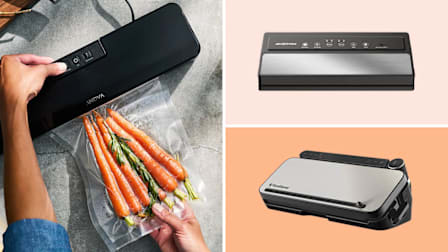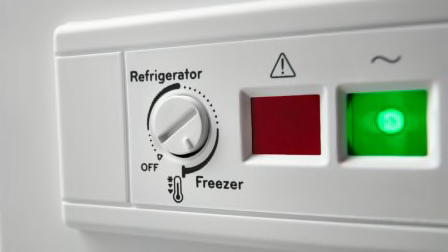Best Electric Lunch Boxes
We evaluated models by Crockpot, Hot Bento, LunchEaze, Steambox, and Uvi to find the best ones to heat meals on the go
When you shop through retailer links on our site, we may earn affiliate commissions. 100% of the fees we collect are used to support our nonprofit mission. Learn more.

Some people are not sandwich or salad people, and that’s okay. But your preference for a hot midday meal can make lunches away from home a bit tricky. Maybe you don’t want to eat fast-casual takeout every day and have no microwave access.
Electric lunch boxes are gaining popularity and might be ideal for adults who eat prepared lunches away from home. You pack up these portable food containers in the morning and take them wherever you go, whether that’s an office, a campus, or an outdoor worksite.
Should You Pack Lunchables for Your Kid’s School Lunch?
A CR investigation found some lunch kits contained lead and other harmful contaminants, and most were very high in sodium.
How We Evaluated Electric Lunch Boxes
We purchased six popular electric lunch boxes. Half are cordless and heat up food using a rechargeable battery, and half have a power cord that you plug into a standard outlet. We evaluated each model for five factors.
- Heat time and temp: How long it takes to heat up and how hot it gets.
- Safety: The temperature it keeps food chilled at, and the box’s external temperature during heating.
- Ease of use: Scheduling, cleaning, and whether parts are replaceable.
- Portability: Weight, size (measurements are our own), carrying handle, and leakage.
- Appearance: Design and color options.
Each model was assessed with cold, cooked foods, which ranged from easy to relatively challenging to heat up split pea soup, kung pao chicken and fried rice, and frozen lasagna.
Then we tested them in temperature-controlled chambers set to 73° F and 95° F to see how well they would keep food chilled when left at room temperature and outside on a hot day.
The Department of Agriculture recommends that cold foods be kept at 40° F or lower and that hot foods be held at 140° F or higher. Foods should not be left at room temperature for longer than 2 hours, or 1 hour in temperatures above 90° F.
None of the lunch boxes were able to maintain an internal temperature at or below 40° F (although none make claims to) after only 20 minutes at room temperature. For this reason, we recommend that users heat up their food within 2 hours or pack their lunch boxes in well-insulated cooler bags with ice packs. Chilling the food tray in the refrigerator before you leave for the day helps keep food cold longer. Freezing your meal would be the safest option if you choose a model that can heat up frozen foods. (Half of them can.)
Members can read on to see which electric lunch boxes came out on top.
A note on lithium-ion battery-powered devices: While rare, lithium-ion batteries can catch fire or explode under certain conditions. Make sure any electric lunch box you buy is certified by UL Solutions. Also, remember to use the manufacturer-supplied charging cord. If your factory charger or cord gets damaged or lost, it can be tempting to buy a cheap replacement that isn’t built to the same specifications as the original equipment, but doing so can damage the battery and cause a fire.




